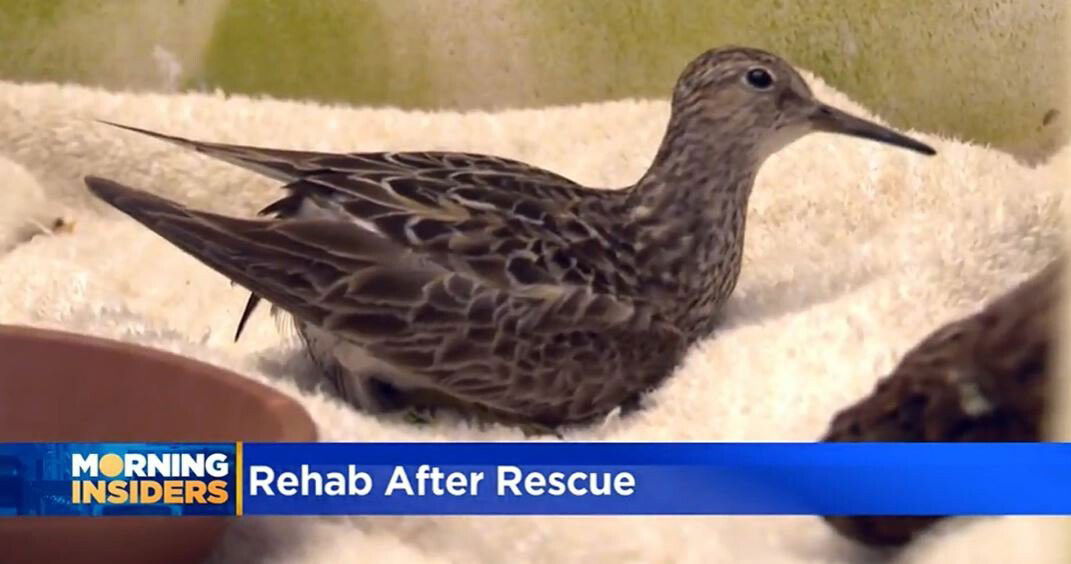Wildlife center nurses hundreds of injured birds back to health

The Willowbrook Wildlife Center in Glen Ellyn nurse all sorts of animal patients back to health.
By Lauren Victory, Marie Saavedra, Kelley Bowles
Click here for updates on this story
GLEN ELLYN, Illinois (WBBM) — The Morning Insiders tagged along with volunteers on their hunt for hurt birds a few weeks ago and watched as they placed injured animals into paper bags to keep them calm before transport.
We wondered: what happens to the bagged birds?
CBS 2’s Marie Saavedra shows us the rehab after rescue.
“It’s great to see them hop right out of the bag,” said Dr. Sarah Reich, after releasing a warbler in her care back into the wild.
The veterinarian and her team at the Willowbrook Wildlife Center in Glen Ellyn nurse all sorts of animal patients back to health. Especially during migration seasons in the Fall and Spring, the bird nursery is busy.
“He tries to stand but he uses his wings for balance,” said Dr. Reich pointing to a sand piper with spinal trauma.
Separately during our sit-down interview, she talked generally about bird intake right now.
“The majority of them are going to be window collisions or building collisions,” she said.
Many in her team’s care in DuPage County slammed into skyscrapers downtown.
Volunteers from the Chicago Bird Collision Monitors try to give them a second chance. A few weeks ago, CBS 2 followed their bright shirts as they searched for deceased samples that’ll go to research. Live ones head to rehabilitation. Someone from the group delivers an injured batch to the Wildlife Center every day.
“The number of migratory birds we take from them [Chicago Bird Collision Monitors] is at least a couple thousand [a year],” said Dr. Reich.
A little over 50% of birds brought in by the downtown volunteers are able to be released after treatment.
“They get a large amount of ocular trauma, bleeding, corneal ulcers, things like that. We do see a large amount of fractures and wounds and things, so really a large assortment of problems but probably the most is head trauma,” said Dr. Reich.
Graduating to a flight cage is the next step after medication. It could be days, weeks or even months on the mend which keeps staff so busy that responding to rescues isn’t an option. That makes the partnership with Chicago Bird Collision Monitors so valuable.
“They’re saving thousands of lives basically just from being able to bring those animals in,” said Dr. Reich.
The problem of birds hitting buildings is not going to go away but one thing that is changing for the better: Willowbrook Wildlife Center.
A new facility in Glen Ellyn is under construction and set to open in 2024.
Veterinarians say the bigger space will allow them to treat injured birds with more detailed care based on their specific species.
Please note: This content carries a strict local market embargo. If you share the same market as the contributor of this article, you may not use it on any platform.